The voyage continues: The Circe Saga
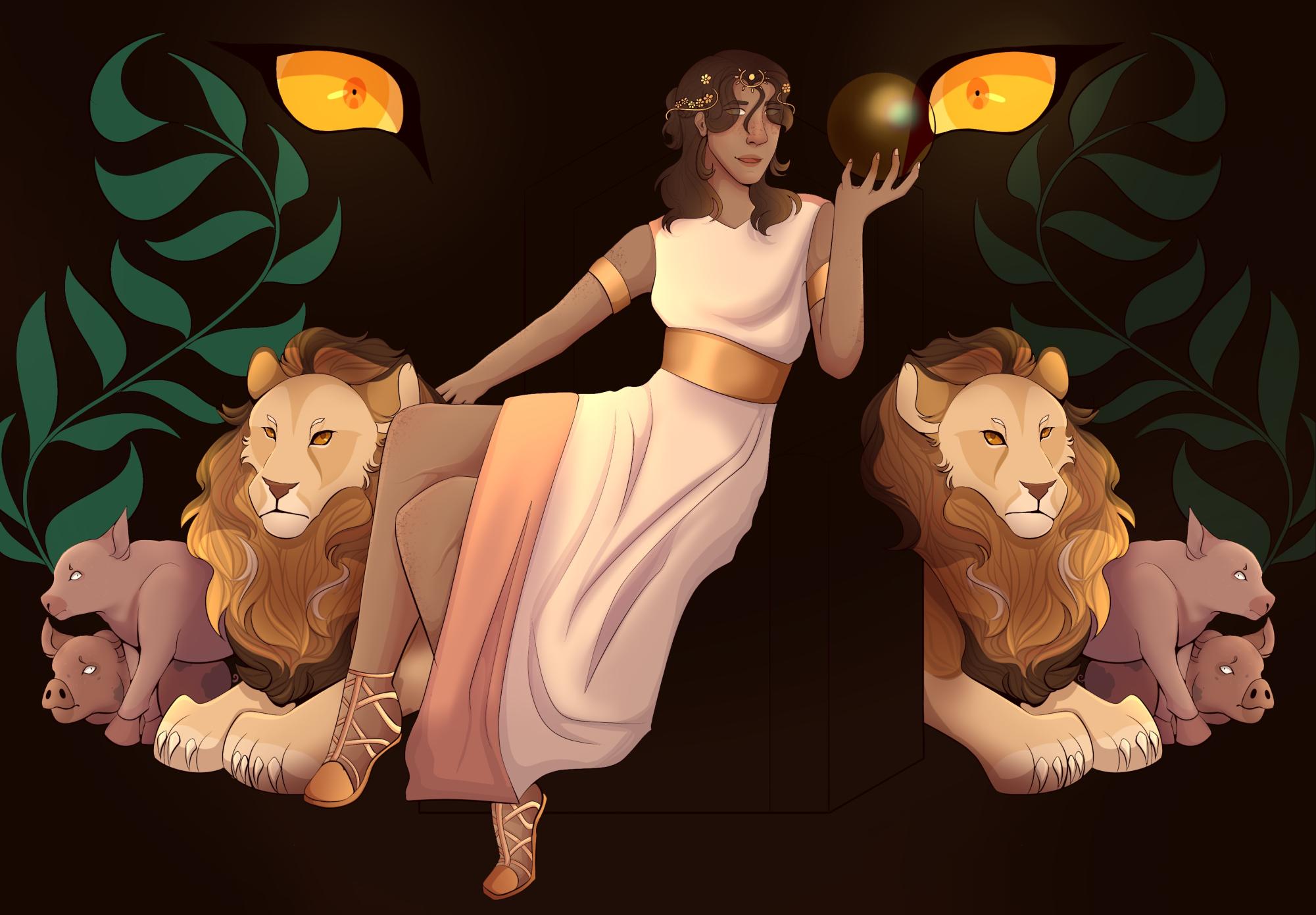
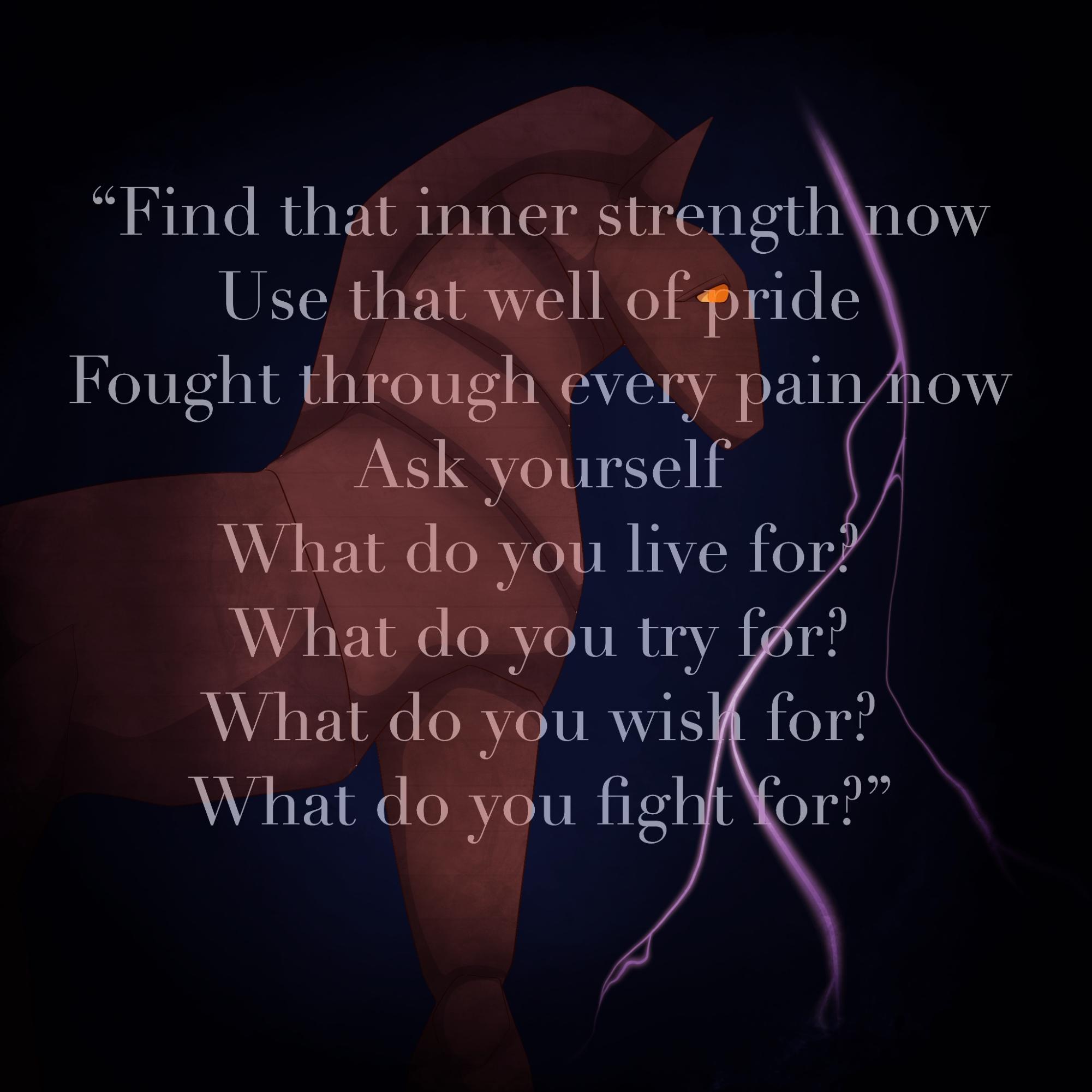
“The Horse and the Infant” is the very first song of the concept album and lives up to these expectations. With a mix of some spoken rhythm elements, changing tempo, and electronic elements, all with their specific purpose. As stated by Jorge Riverra-Herrans, the playwright and creator of “Epic,” this first melody had to establish four main points: what kind of a play “Epic” is, the musical language of the show, and how it applies to each character, and the themes that might be explored throughout the musical. At the start of the song, the audience is introduced to orchestral themes and a constant increase in the tempo of the song, representing the mortality of all characters seen as they prepare to charge from inside to the Trojan horse. However, not only mortals are represented in the opening number but Athena, Odysseus’ patron goddess and the deity of strategy and wits; and Zeus, king of the gods and thunder are also shown. First by the ticking of a clock and next by adding electronic elements that accompany all creatures with power in the musical.
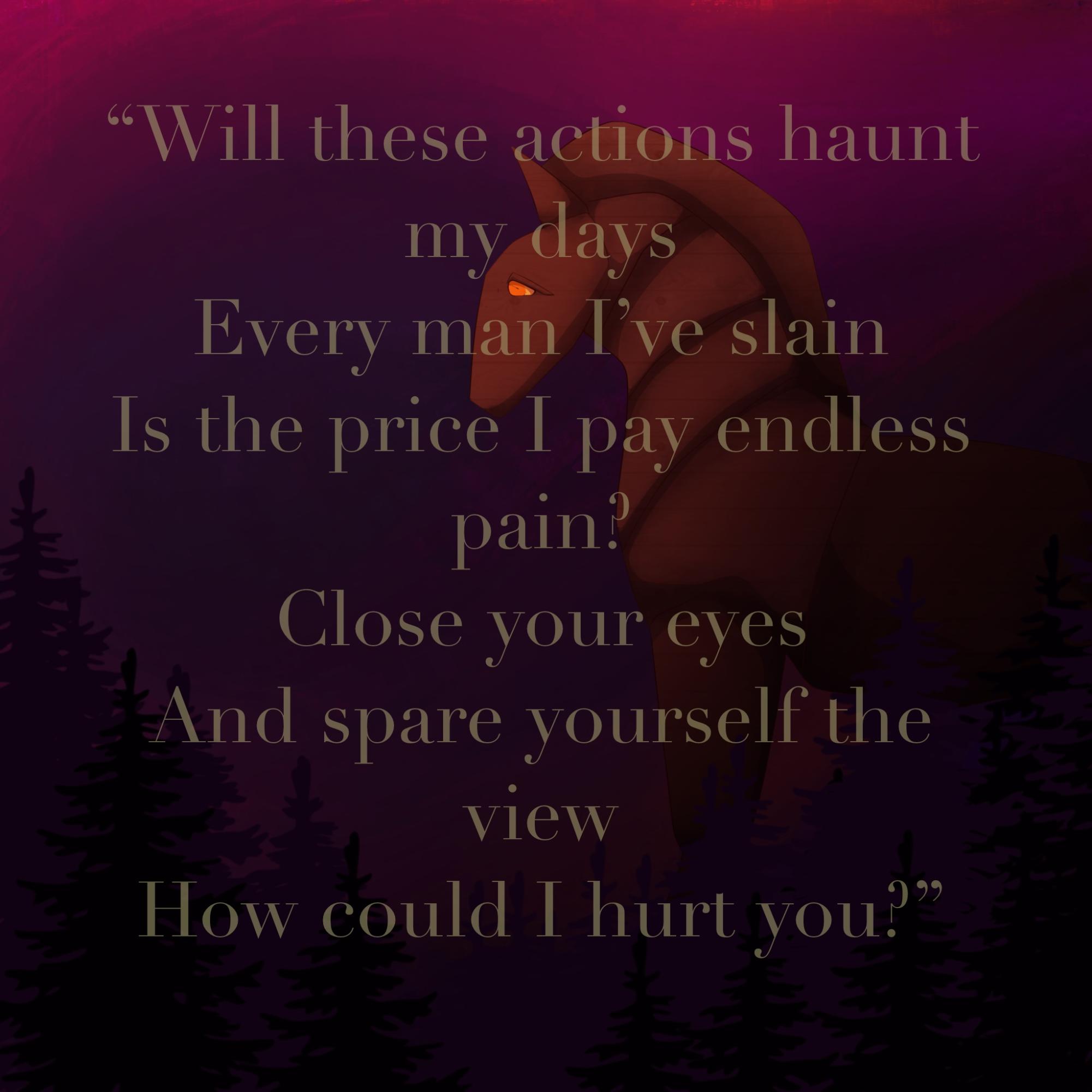
As Odysseus’ morals are tested, he has to decide if he should sacrifice a young life or let him live at the cost of his own life and the lives of all people of Ithaca, people of his kingdom. The melodies are extremely raw during the start and have many stringed instruments, especially the guitar instrument that musically represents him. But in this moment, it is also a bridge between him and his family back home, where his wife is represented by the viola and there are soft hymns in the melody, showing the audience his grieving heart that wants to return home.
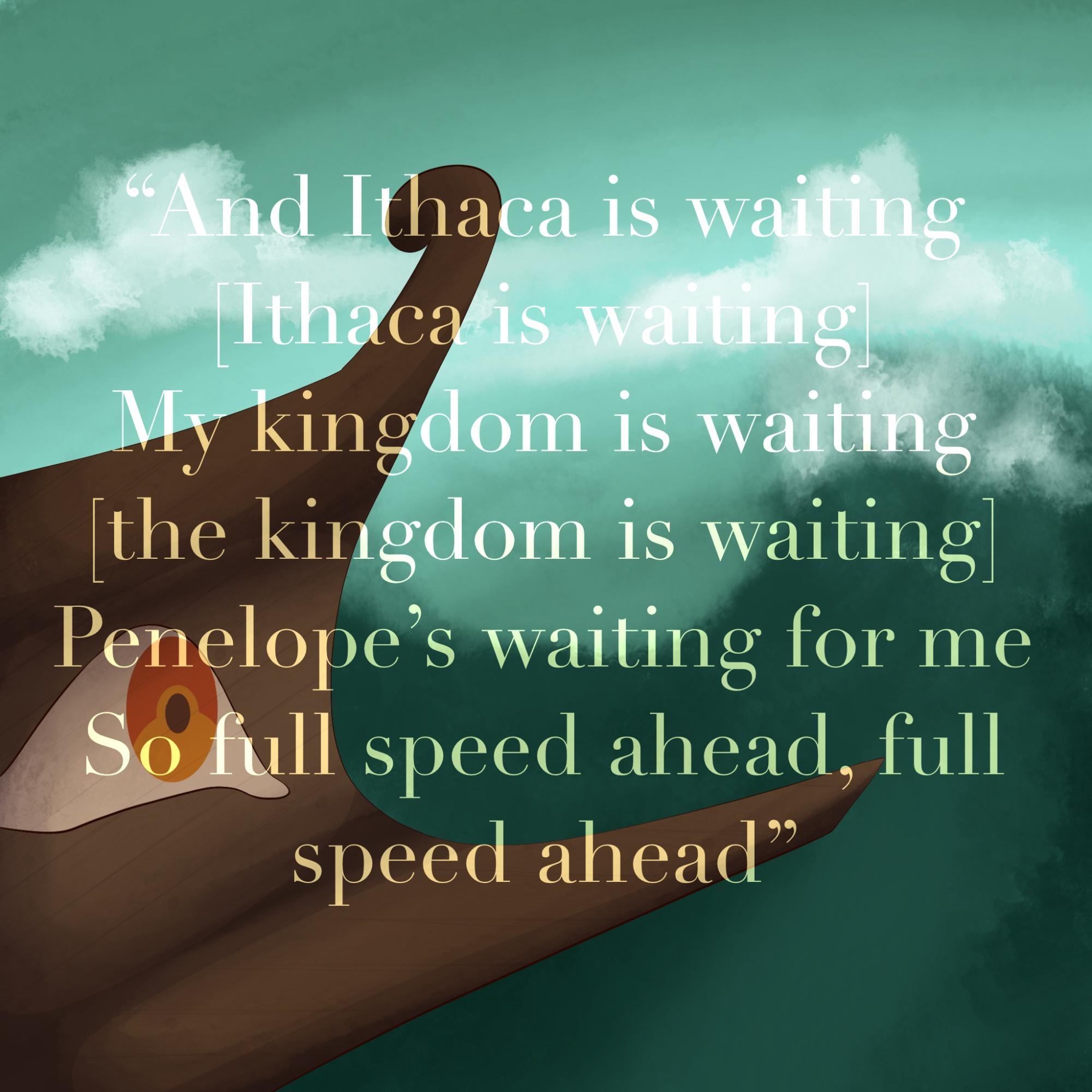
Marked by magnificent upbeat music after a devastating choice, “Full Speed Ahead” is the song that introduces three important side characters to the story Eurylochus, Odysseus’ second in command, Polites, the hero’s dearest friend, and the rest of his crew, whose musical moments always accompany Eurylochus. It also reveals the next step of their journey: finally returning home after ten years of war in a foreign land. Its incredible use of a chorus and the grasp of each of the actor’s tone of voice shows mastery in the manipulation of each person’s ability, and the simple details such as the sound of waves in the background richly add to the imagination of the audience.

Another very upbeat yet special song, “Open Arms”, shows the strong bond between Odysseus and Polites over a conversation about the importance of kindness and not taking precipitated actions. As Rivera-Herrans mentions, Polites is represented by the Kalimba and Marimba, both of which are very bright and cheerful, showing how the character “is the embodiment of light in the show,” reflecting his will to greet the world with empathy rather than aggression.
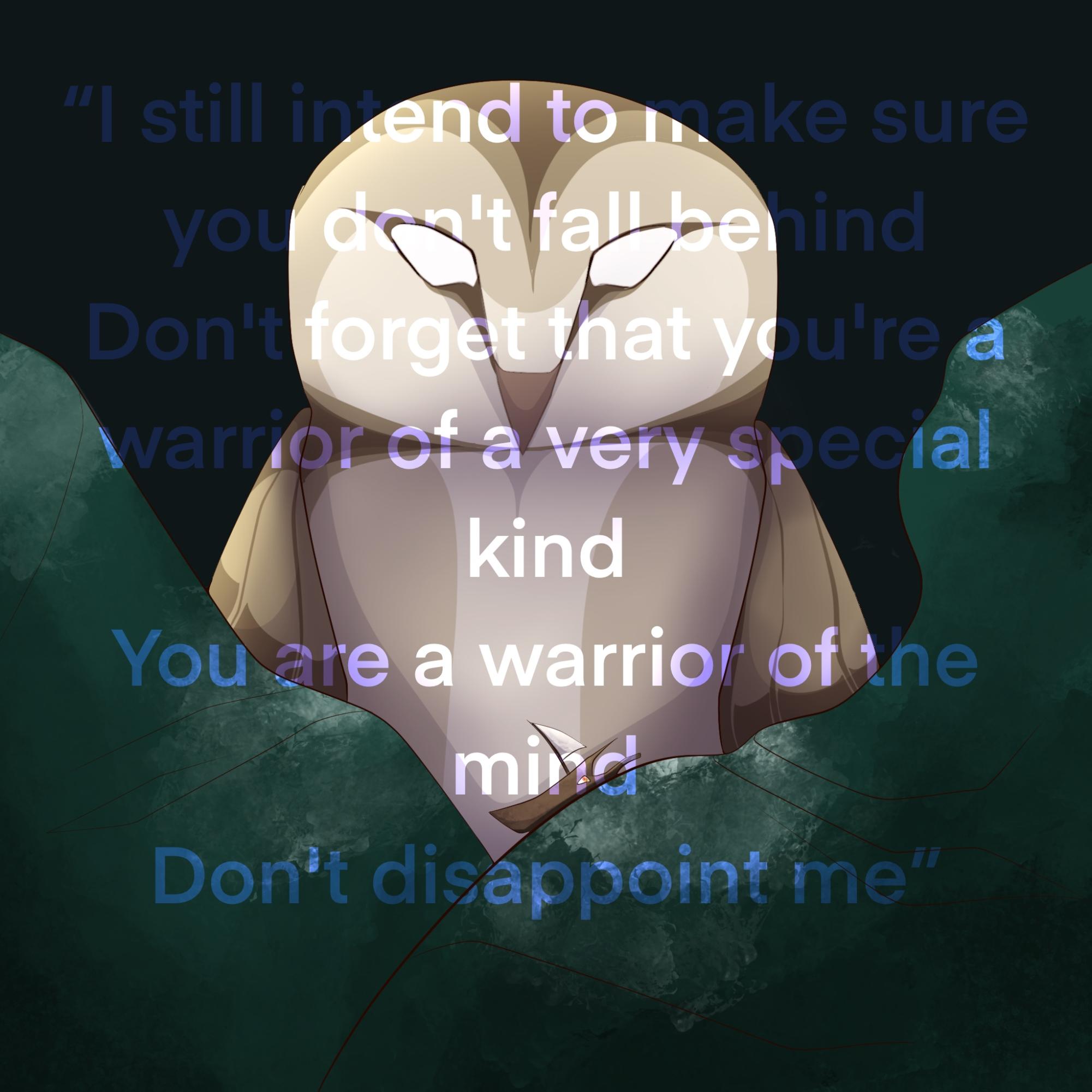
“Have you forgotten the lessons I taught you?” are the very words that begin “Warrior of the Mind,” introducing one of the most impactful characters of the story, Athena, and her status as Odyssus’ patron goddess, responsible for his mentoring in youth and guide as a fully grown hero. She uses her power, known as quick thought and represented by the clock motif, to have a conversation with the famed hero of Ithaca and remind him how harsh actions are necessary to accomplish his objectives. The goddess’ accompanying instrument is the piano, one that requires great dexterity and ability to play, enforcing her status of representing battle tactics and intelligence.
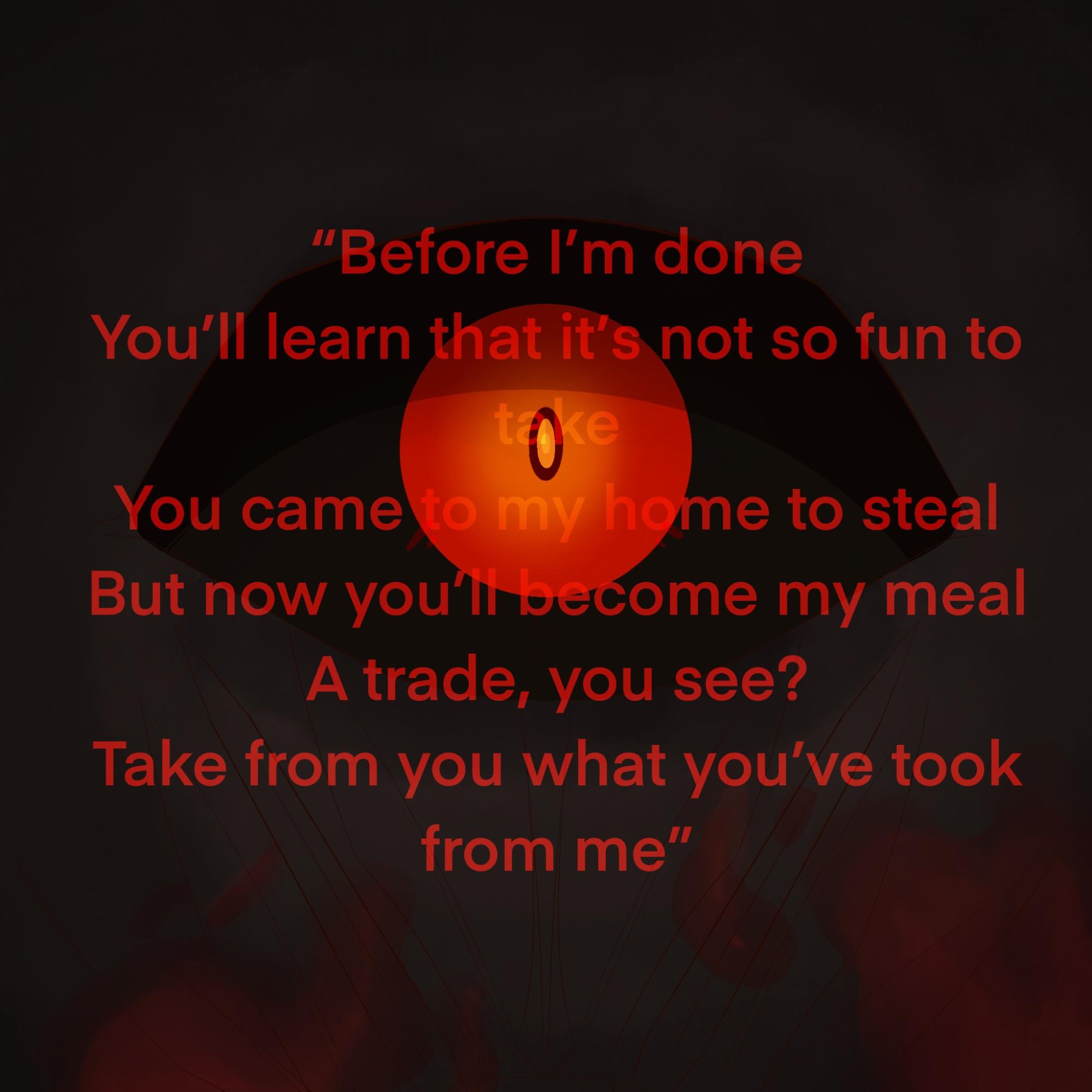
Offering a complete change in tempo to the musical, “Polyphemus” reveals the first true enemy that will be faced: the cyclops Polyphemus. The perfect balance between music and silence is what makes this song truly unique. The overwhelming silence behind the voices of Odysseus and his crew transports the apprehension in the hearts of the characters right to the audience, making the revelation of the Cyclops incredibly uneasy. Another element that was well played was the use of each character’s instrument, specifically Odysseus and Polyphemus’, where the first is represented by the light strumming of a guitar until the revelation of the mythological beast, where all beats fall to low tunes. There is the introduction of the cello, heightening Rivera-Herrans’ intentions with the emotions imputed into the song.
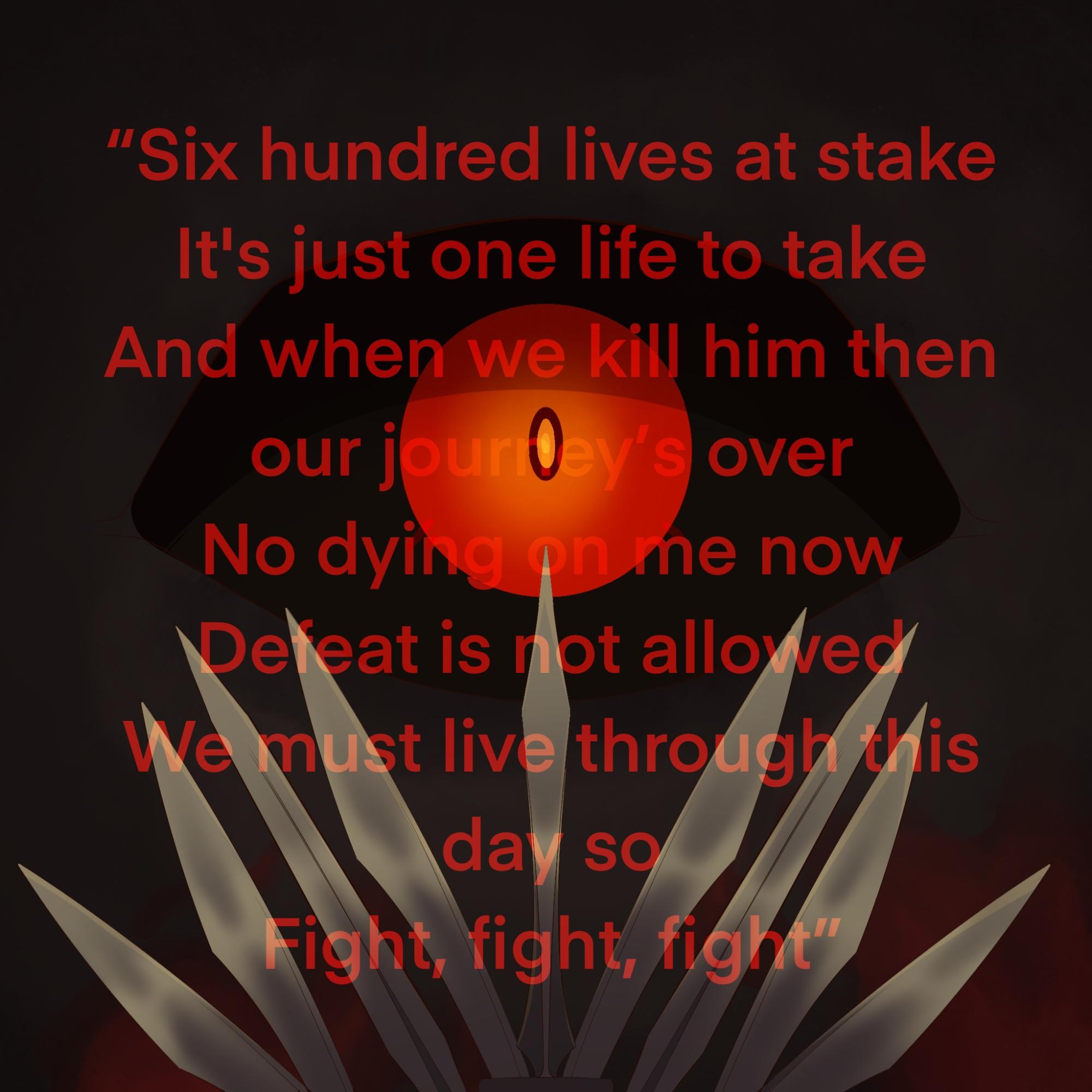
The battle erupts with a roar from Polyphemus, with a smooth transition from Polyphemus to Survive, the tempo starts to be raised rapidly, reflecting the rush of adrenaline that all of the crew received from the cyclops’ unexpected attack. Later on, the contrast between their fighting style reliant on speed while Polyphemus is a slow but powerful attacker. Complimenting sounds of battle and the unpredictable silence just add to the strength of the instrumental performance, making the sounds of despair as the Cyclops gain an edge to the battle increasingly menacing.
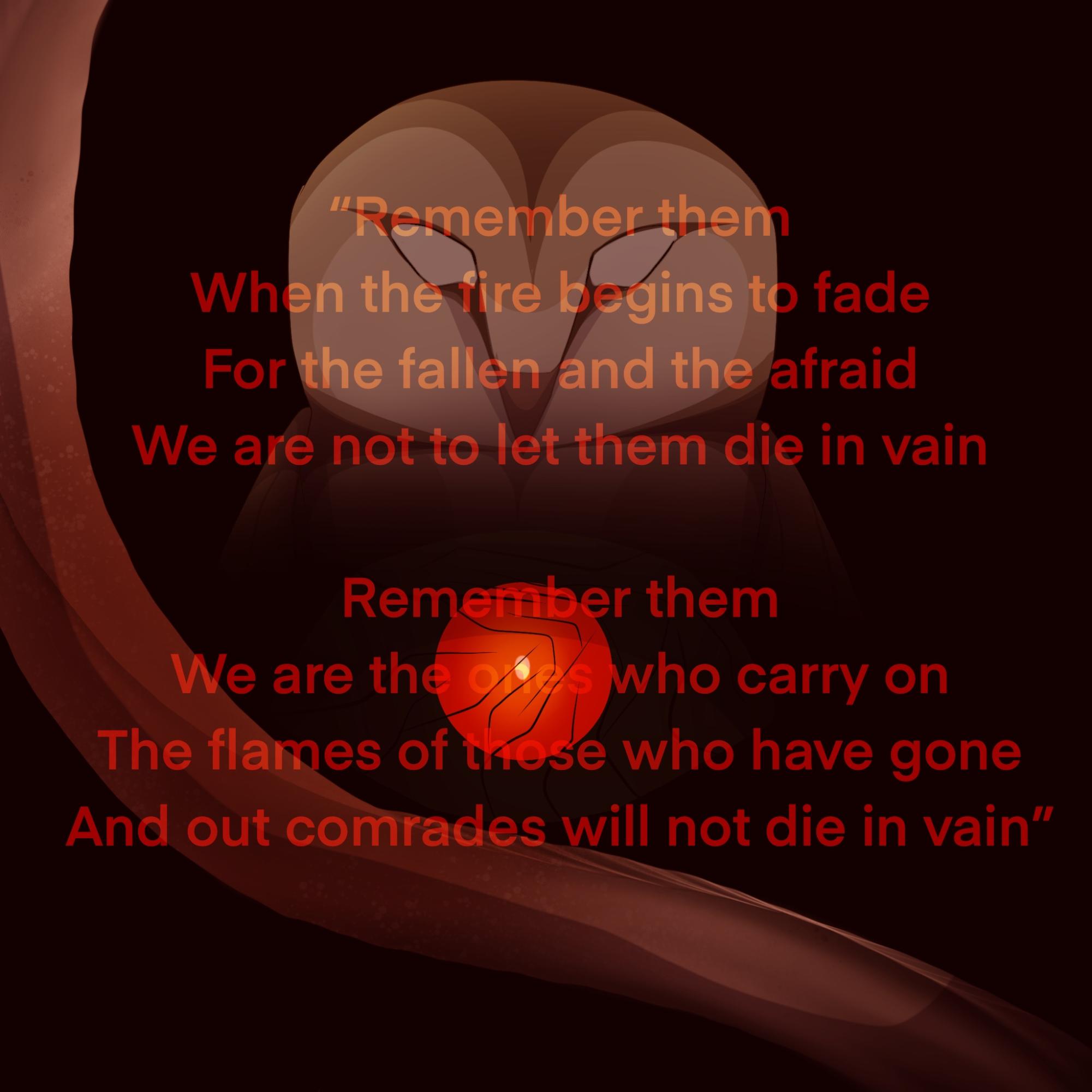
“Remember them” represents the sorrow of Odysseus and his emotional response after the sudden loss of his crew members, especially Polites, in a surprise attack from the Cyclops. With the use of a lotus flower from the island, Polyphemus faints and the hero decides to attack his most vulnerable spot, his one eye. However, he honors his late friend by sparing the Cyclops’ life instead of treating him with ruthlessness, a decision that dearly upset his patron goddess and incurred her wrath.
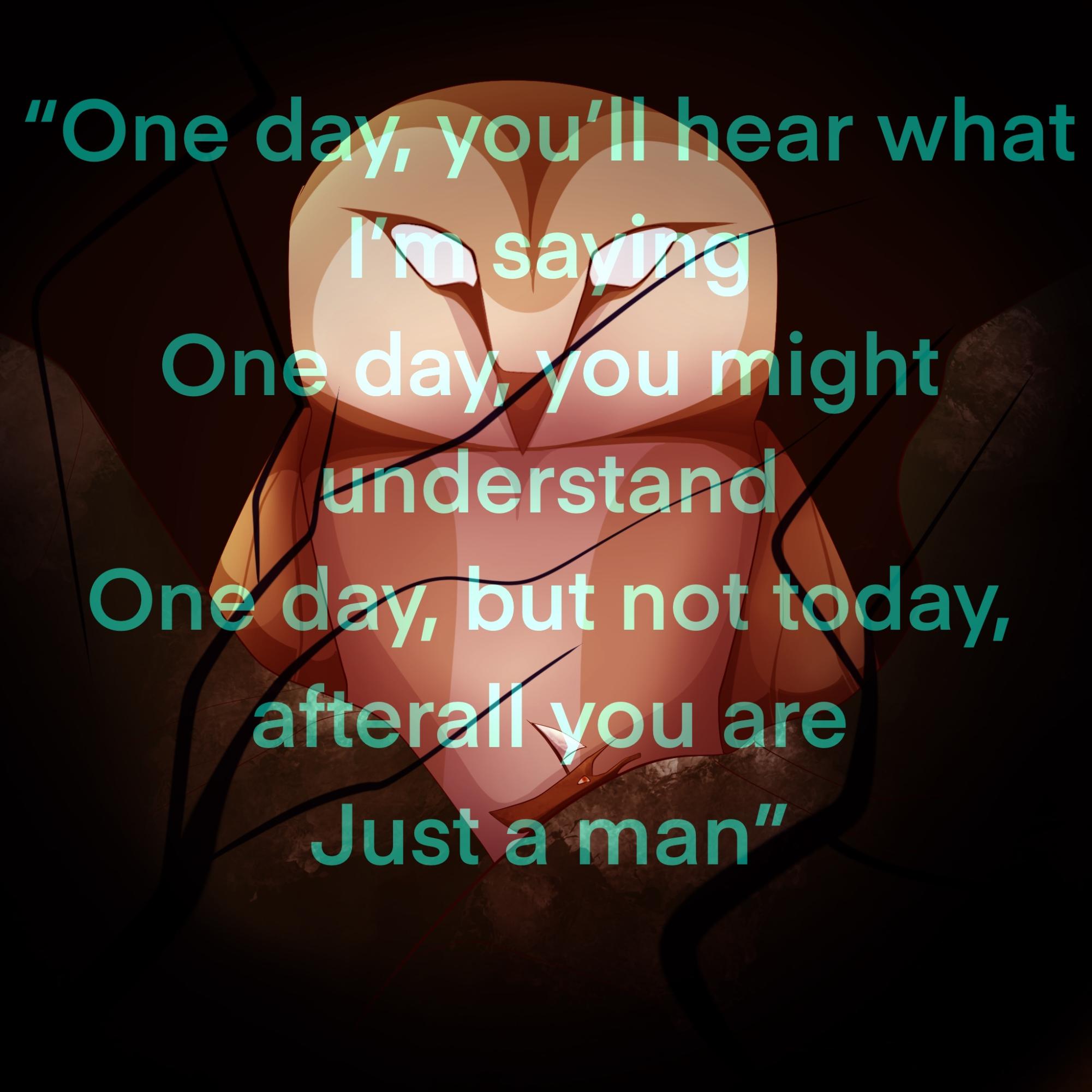
Despite the confrontation with the Cyclops finalizing, there is still one major conflict: Athena’s warning given in “Warrior of the Mind” not being heeded, and his disrespect towards the goddess. Athena does not take such disregard for her judgment lightly. As revealed in “My Goodbye,” Odysseus and the deity have a heated argument regarding their flaws and morals, a catchy collision of both of their instruments and melodies, accompanied by marching drums at the end of the song, a reference to their connections to the Trojan war. In the end, he loses her protection, a costly decision considering what is to come.
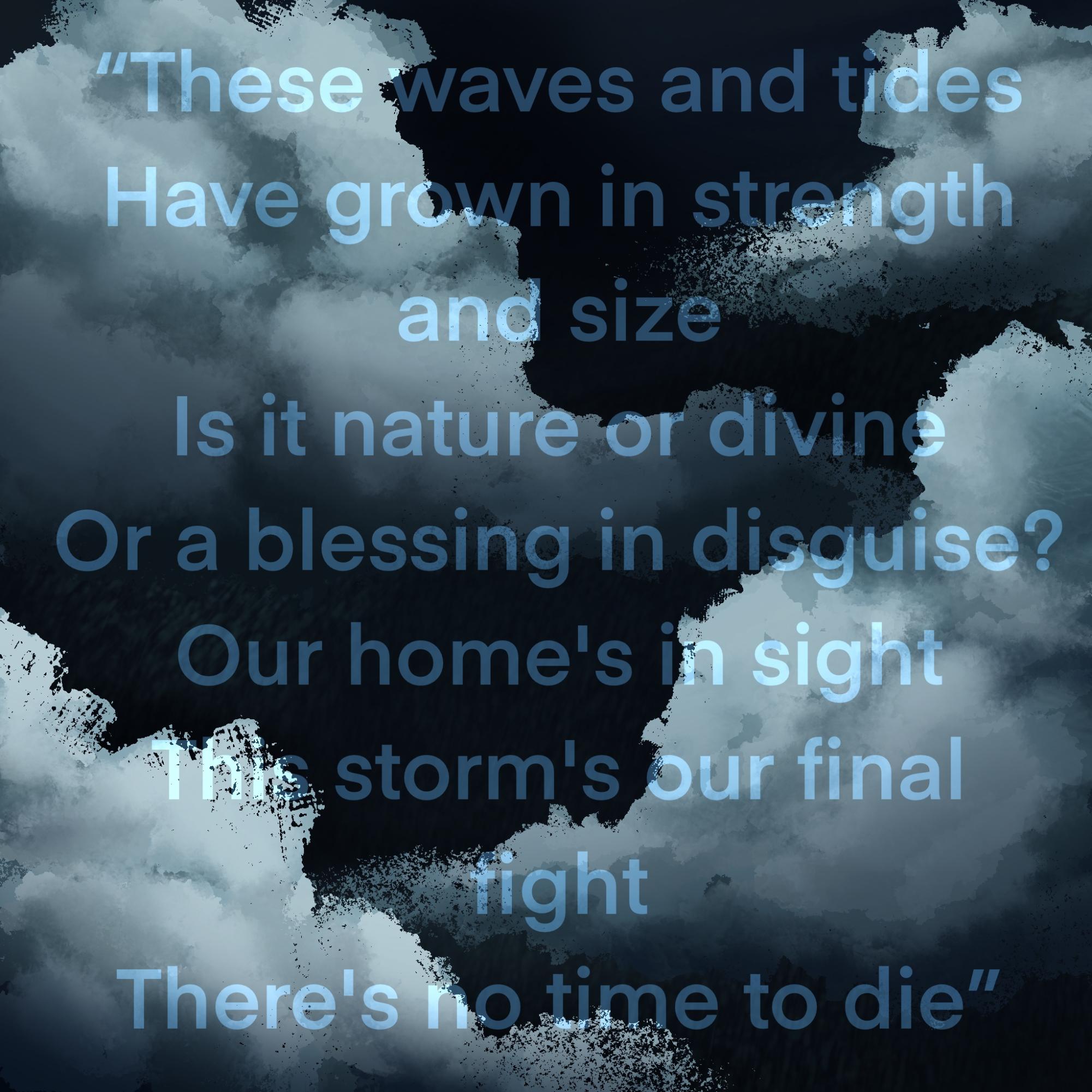
A powerful storm hits Odysseus and his crew and a mixture of hope and fear washes over them as they fight against the forces of nature to finally arrive home. With some similarities to “Full Speed Ahead,” “Storm” implements many elements of the crew’s voices with higher and lower cadences to create beautiful melodies that give a similar impression to the sound of violent winds. There are also subtle additions of trumpets, a representative element of an antagonist that isn’t yet revealed, raising the question of whether the storm was truly natural or the feat of a god.
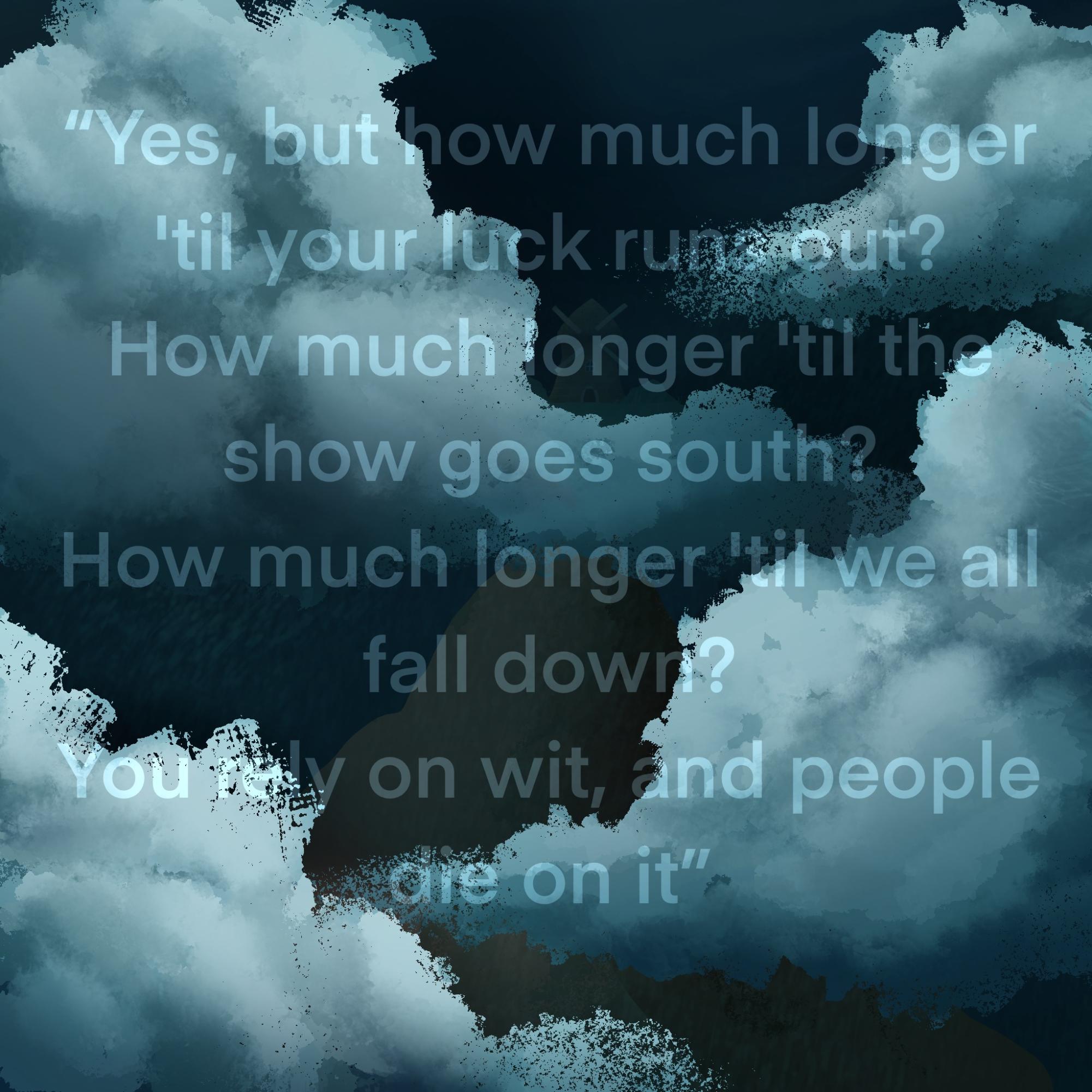
Upon reaching the safety of the island of the wind god, Aeolus, Eurylochous expresses his worry for the safety of all the men that they led, going to have a conversation with Odysseus to explain that all worried that their luck to be alive would soon run out. Six hundred men went to war from Ithaca, all survived, but only a few were lost to the Cyclops. They wondered if there was a great tragedy coming to decimate them. Despite their concerns, the captain remarks that he needs Eurylochus’s undying trust. Without the second-in-command’s trust, all others wouldn’t have the courage to keep going.
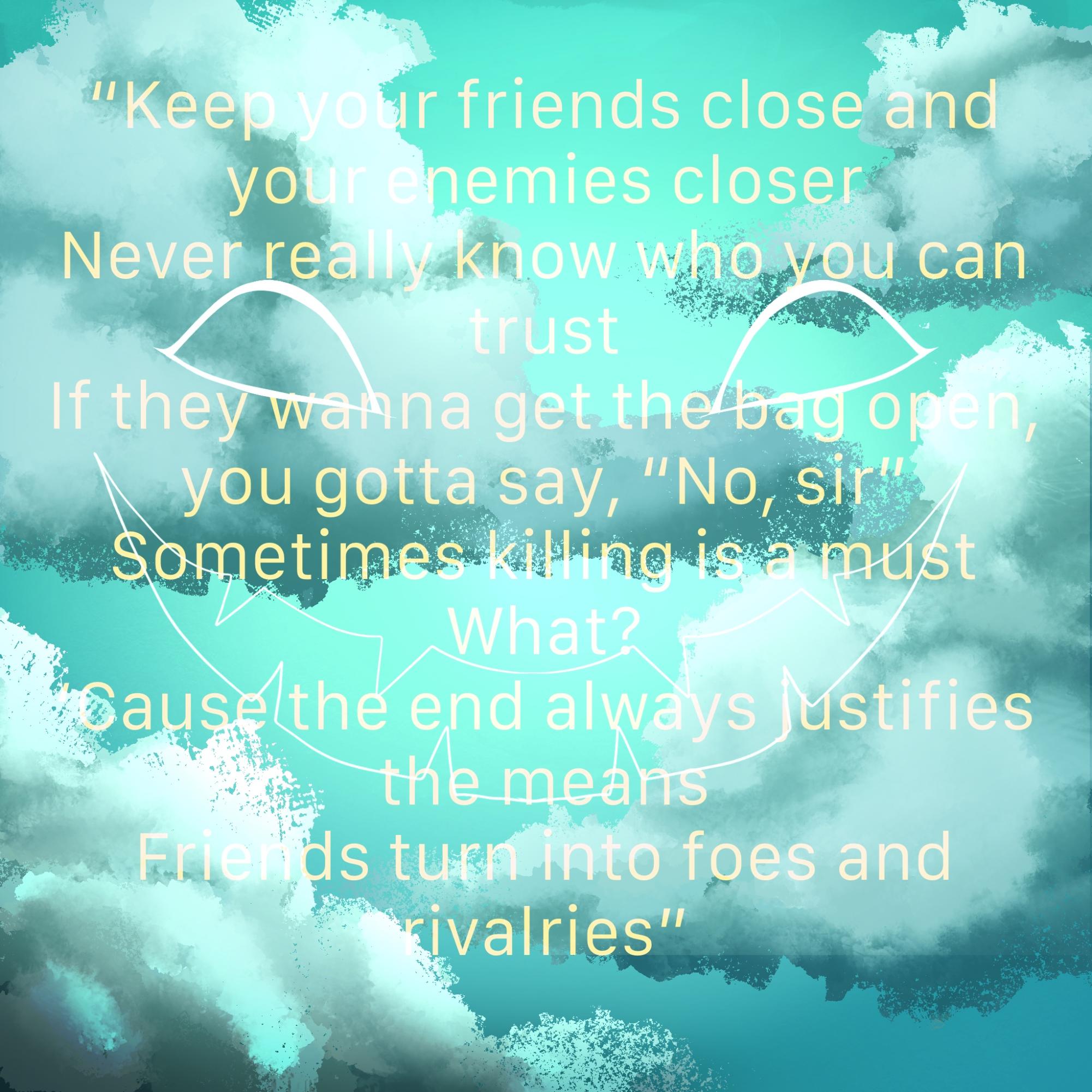
“Keep your Friends Close” shows the progression of a week of events throughout the progression of the song. It reveals a small deal made by Odysseus and the deity to evade the storm. Aeolus, being in control of the winds, traps the spirits of the storm in a sack and gives it to the captain, challenging him to keep it close while his crew questions if he is telling the truth about the contents of the bag or if he is hiding treasure. There are many important instrumental aspects carefully managed in this section, such as the difference in the beat of the background voices and of the overall song, the revelation of Odysseus’ delirium for home, and the eventual opening of the bag.
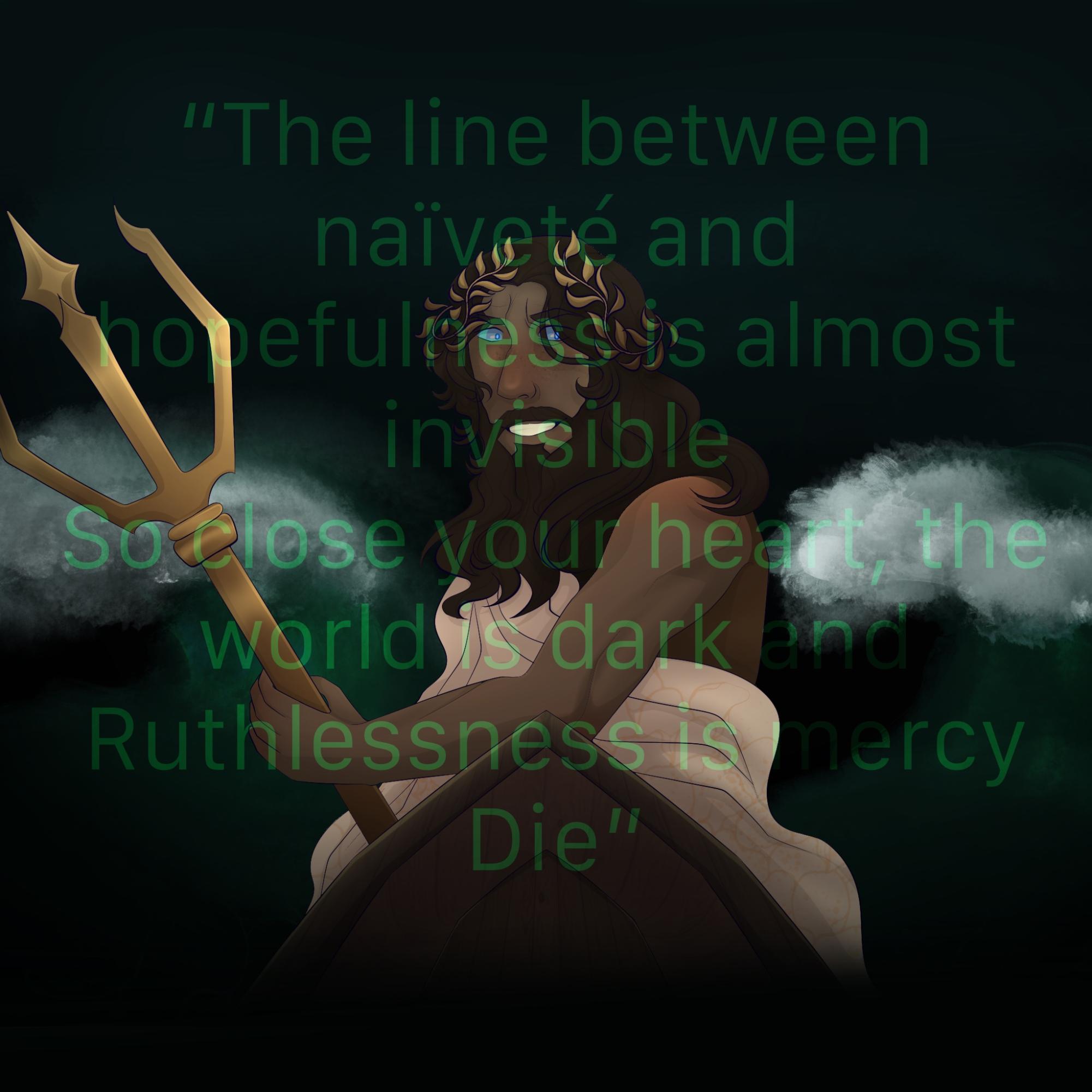
The reality of who caused the storm that was chasing Odysseus’ crew is finally revealed: Poseidon, God of the Sea, who is seeking revenge against the Greek Hero. His rage came as payback for two of the hero’s actions, blinding his Cyclops son and the lack of ruthlessness in his actions. The only reason the God even came to set the balance right was because Polyphemus was alive after his attack, which wouldn’t have happened if Odysseus had the guts to be fierce. The price for his cowardice being the greatest of them all: the death of four hundred and fifty-seven out of six hundred in his crew. In this particular song, there are so many detailed elements that impress the feeling of danger, from the separation into triplets, giving that sense of rush, the addition of staccato strings (like done in Jaws when the sharks come by), and the blaring of trumpets, his main instrument.
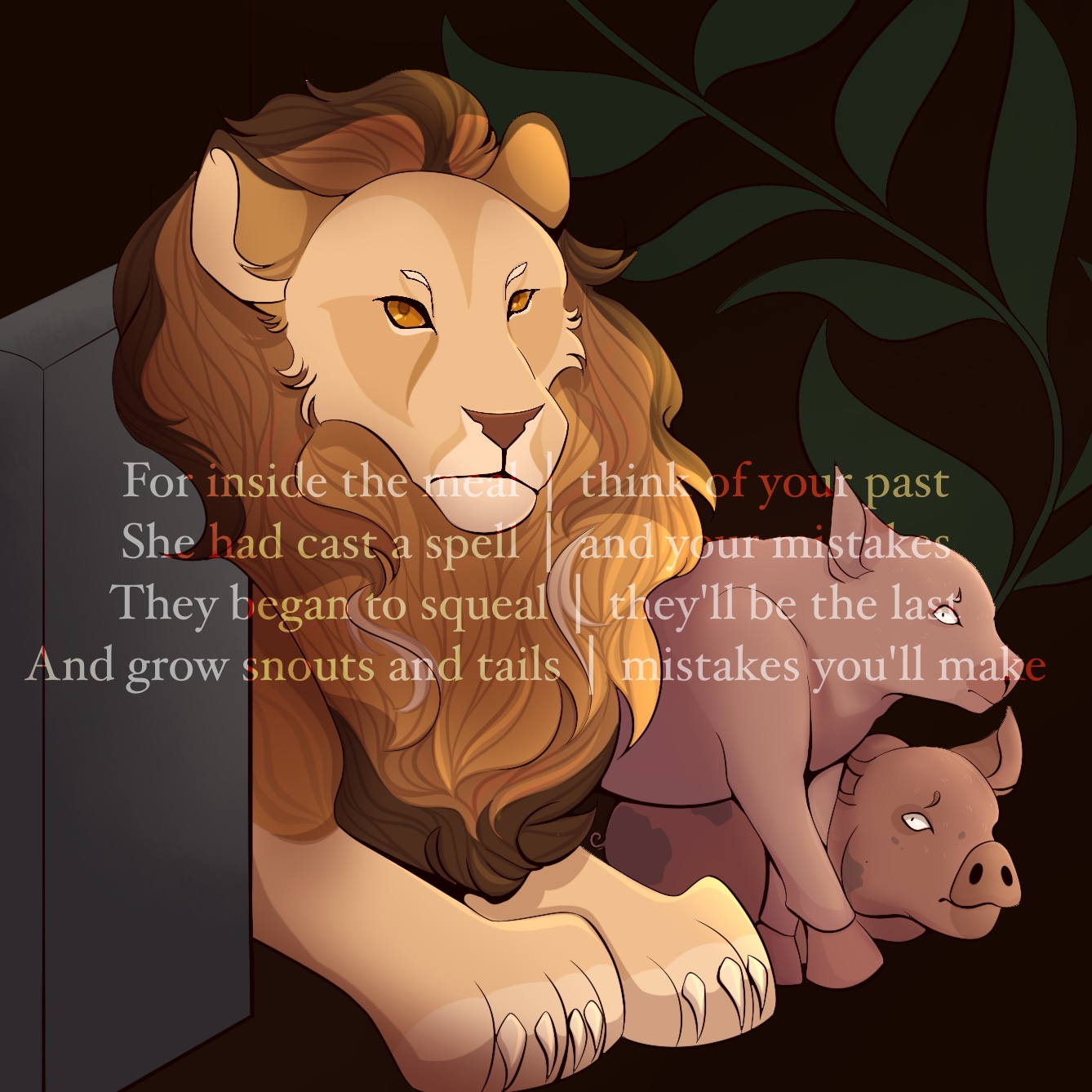
“Puppeteer” reveals a complete shift from the chaos that Poseidon had brought. Using the last wind from Aeolus’ bag, the remainder of the crew lands on a fertile island called Aiaia, home to a powerful woman. When Rivera-Herrans says, “She’s a queen, she’s a goddess, she’s a witch, she’s a badass,” she uses her charming personality and persuasion to trick Odysseus’ men into drinking her enchanted wine, turning them all into pigs, the form she sees as the fittest considering all the harm they could have caused to her and her nymphs. Only Eurylochus escapes from her trap, warning the captain about the witch. Apart from Talya Sindel’s melodic voice used for Circe, there are also many electronic elements to represent her magic (with the Low-Frequency Oscillations) and the recurring strumming of strings to represent her regality.

As Odysseus heads to Circe’s abode, strategy brewing in his head for how he could defeat an all-powerful sorceress, a very helpful god offers his assistance. Hermes, the messenger of gods, offers him a new weapon, the flower moly, which gives the hero safe ground against Circe. In his music, Jorge Riverra-Herrans gave him a characteristic pairing that he calls “harps and arps”, the second word being a short version of arpeggios, lyres, and groovy melodies that can make any listener sway to the song along with the quick-footed god.
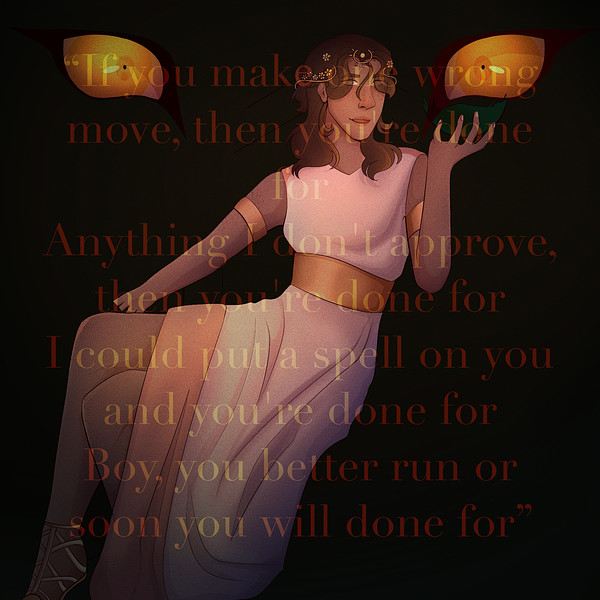
The hero and the goddess finally face each other. Their might to defend those reliant on them high as tension arises and Odysseus comes out victorious, but not for a long period, as Circe prepares to use her last resort. Accompanied by beats that remind the listener of the French Opera Carmen (Habanera), as both women use seduction when put in tighter situations; apart from this, as both characters have their intellectual conflict, the instruments and orchestra represent the conflict between their representative instruments, as Riverra-Herrans explains in one of his videos.

As powerful as Circe’s seduction is, Odysseus’ yearning for his wife and family becomes stronger, resisting the witch’s trick and convincing her to free himself and his men with the next step of their journey, a trip to the underworld to meet the prophet Tyreseas. This song is particularly intricate with its use of melodies from many other moments and characters of the musical. Penelope’s classical viola is played when he thinks of her, a nice touch to represent the character without the direct mention of their name, another relevant foreshadowing is the synth and sounds used when Circe mentions the underworld, which resemble a high level of detail the ones used in other snippets featuring this mythological place.




Ell Macias • Feb 26, 2024 at 9:42 am
Luisa your graphics are always so beautiful, amazing job :]
Netra Nalubolu • Feb 26, 2024 at 8:54 am
<333 love you so much for writing this!!!!